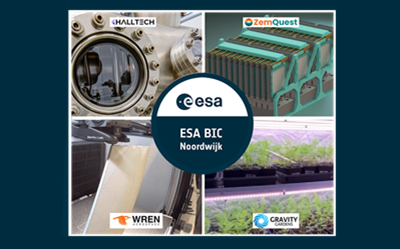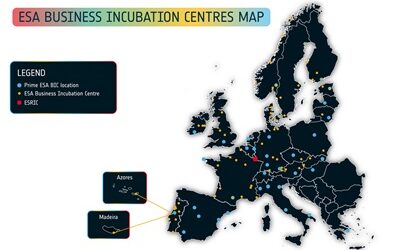The European Space Agency’s business incubation programme is celebrating its 20 years in 2024. What started in the Netherlands has grown into the largest network of incubators supporting space related startups in Europe. The Netherlands Space Office (NSO) sat down with ESA BIC head, Niels Eldering, in an interview discussing the first 20 years of the network (#20yearsESABIC).
The following is a re-post of a news item from the NSO website.
In space, there is always room for new talent. This is evident from the figures of the ESA’s network of Business Incubation Centres (ESA BICs). Over the 20 years, since the very first contract was signed with an incubated startup in 2004, more than 1700 startups from 22 different countries developed their businesses at an ESA BIC facility.
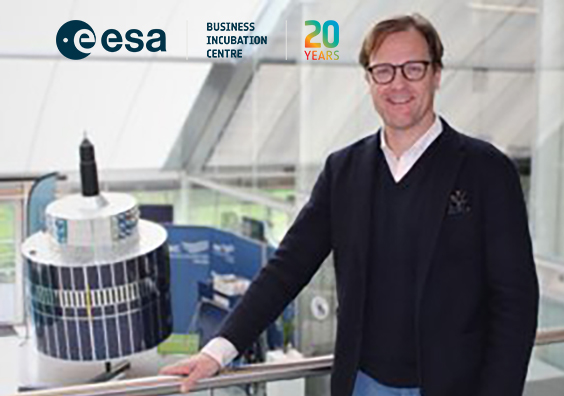
Niels Eldering (NE), head of ESA’s Entrepreneurship and Business Incubation in the Commercialisation Services Department, has been there since the beginning.

NSO: The first ESA BIC was founded at ESTEC. What was the idea?
NE: Around the turn of the century you saw more and more startups popping up in Europe. ESA had had a knowledge transfer programme for years, but that was focused on mature companies that wanted to bring technology from space to the market. That there needed to be a startup programme was clear even then, but exactly how had yet to be figured out. So that’s where I wrote my master’s thesis in 2002 as a business administration student from Rotterdam. The idea was to set up an incubator that would select promising startups with different application ideas from the space industry. And then support them with business and technical knowledge. ESA was eager to try that itself. Thus was born ESA BIC Noordwijk in 2004.
What made the Netherlands the right breeding ground for such an incubation experiment?
I think there are three reasons for that. First: standing on the shoulders of giants. At ESTEC in Noordwijk, we had been working on valorisation since the 1990s – bringing knowledge and experience from space to the market. We could build on that with ESA BIC. Second, the Dutch government at the time had a very specific subsidy programme, Subsidie Infrastructuur Technostarters (SIT), which stimulated the development of incubators. And finally, that subsidy had few restrictive conditions. For example, there was no obligation for startups to stay in the Netherlands after the first few years. This really allowed ESA BIC to be a testing ground for Europe, born of our spirit of trade and open economy. The idea was: you can do good business with the Netherlands, so come to us, start your company and let’s do great things together. Then, economic growth will come naturally.
It didn’t stop at the Netherlands. What caused the rapid growth of the ESA BIC network in Europe?
When ESA BIC Noordwijk became a success, other ESA sites wanted to try it too. ESOC in Darmstadt and ESRIN in Frascati started incubators in Germany and Italy, respectively, using the lessons we had learned in the Netherlands. In 2008, Germany’s Bavaria showed that you don’t necessarily need an ESA site to start a space incubator. The key ingredient is enough entrepreneurial talent in the region: people to collaborate with. The success of ESA BIC in Bavaria created the case needed to open the door to all of Europe.
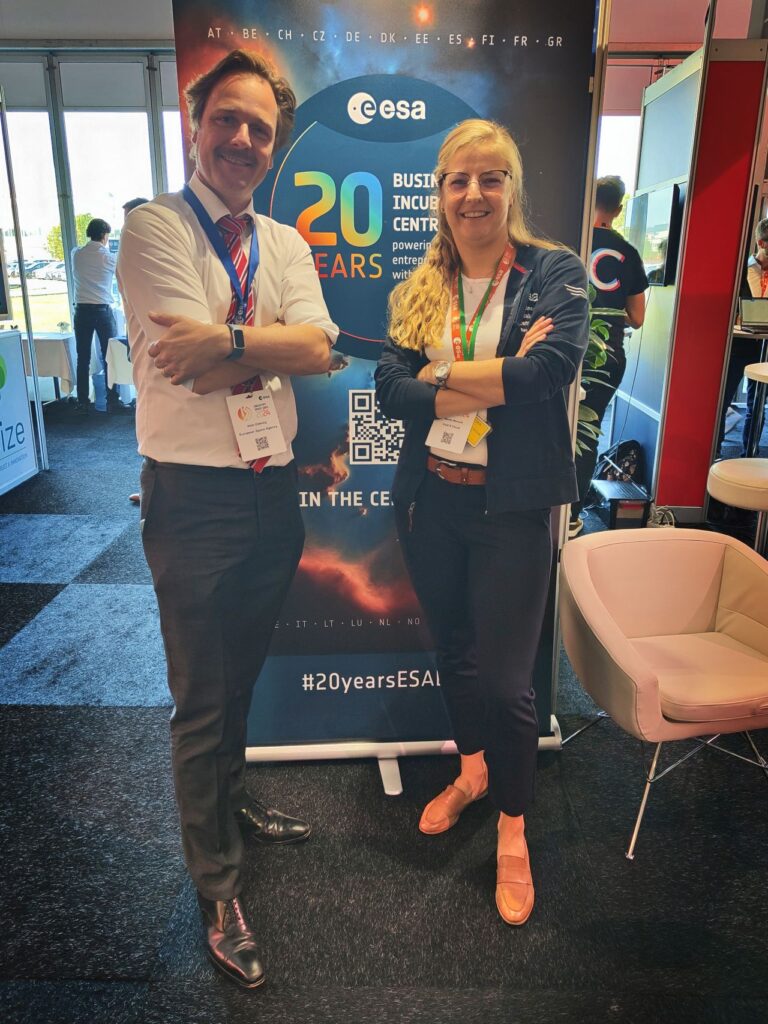
What has the ESA BIC programme achieved so far?
We now have 30 incubators in 22 different countries. Together, they have helped nearly 1700 startups over the years. Of those companies, some 85 percent survived the first 3 to 5 years. Even more interesting than the rapid growth we have experienced is understanding what ingredients you need to start successful ventures in space. That’s what we’ll be researching in the coming years, in collaboration with business administration faculties such as those at the Rotterdam School of management at Erasmus University.
The world is changing rapidly. How has ESA BIC changed over the years?
Startups are the pioneers of the economy. They are often just a little ahead of the rest of the market because they foresee major trends and developments. In the 20 years of the ESA BIC network’s existence, there have been three major developments. The first generation of startups brought hardware from space to other sectors, such as healthcare and logistics. The second generation saw the great promise of European satellite programmes like Galileo and Copernicus. Even before the satellites were launched, they paved the way for commercial-use scenarios. They started working on satellite applications for our society. There is also the generation focuses on NewsSpace: they build rockets, satellites or components for a rapidly growing, international space economy.
“Startups are the pioneers of the economy – they foresee major trends and developments”
niels eldering
What role does NSO play in the ESA BIC story?
The Netherlands Space Office (NSO) supports the ESA BIC programme in the Netherlands with funds from the Ministry of Economic Affairs, and for that reason alone plays an indispensable role. But we also work extremely closely together in terms of content. NSO specialists, together with local partners and ESA, are involved in the selection of companies that can join the incubator in Noordwijk. They look at opportunities in Europe as well as the national space strategy.
What makes space such an attractive field for startups?
The idealistic approach is that space connects. In the end, we are all just people on a little blue ball in the big universe. We have to work together to not only survive in that universe, but to move forward as humanity, as a society. Startups are naturally good at working together. On the other hand, space is a very competitive market. It is a market that is about pushing boundaries, wanting to be first, coming up with innovations. This field of tension, working together and being competitive, leads to a dynamic world that is never boring.
What does the next 20 years look like for ESA BIC?
In the coming years, space knowledge and a good network will become even more important. I expect more involvement from ESA because it has the knowledge needed to develop hardware for space. And that is what many startups will be doing. Initially, much of the focus will be on satellite communications networks. In the further future also to production activities in low Earth orbit, for example of solar energy. For this, you need shuttle services, charging stations, new interconnection systems. Startups will come up with brilliant ideas to develop all this. And a lot of them will start at ESA BIC.
This is an edited version of the news item that appears on the NSO website.
NSO is an incubation, technical, community & media partner of SBIC Noordwijk (click for details)
Related link:
20 years of ESA BIC: Entrepreneurship in space requires many talents
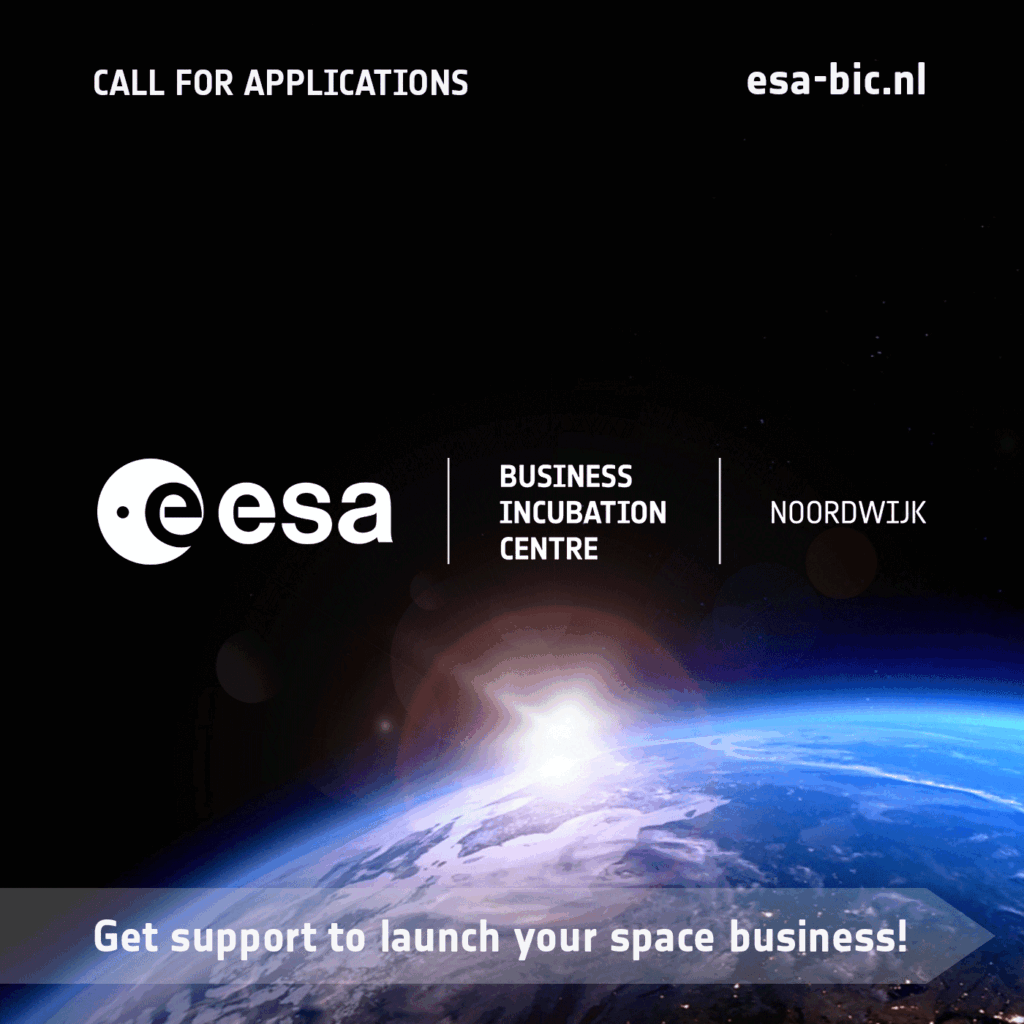
Get tips for applying at the next ESA BIC info session!
APPLY TO ESA BIC NOORDWIJK
You can apply to the Dutch business incubation programme of the European Space Agency, ESA BIC Noordwijk, if you are an entrepreneur or startup. The programme gives you the best chance of developing your space business idea via a well-established network and community in the heart of the Dutch space industry. You need to be resident in the Netherlands, with a company that is not yet founded or not older than 5 years. Then, the rest is up to you. Share your business proposal in the fall application round and you could be joining our space community soon. Follow the pre-steps before submitting your application by 16 October 2024. Join for the next webinar to find out more. esa-bic.nl
Prepare your space business idea for lift off!
Discover everything you need to know about the ESA BIC Noordwijk programme.
